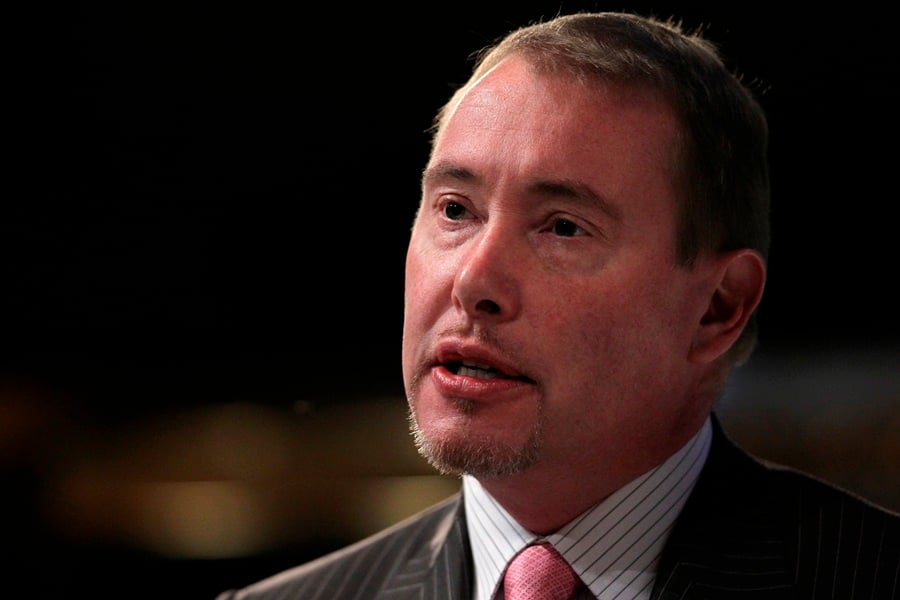

Default rates on high-yield bonds may double as companies struggle with a protracted economic downturn even as the Federal Reserve props up valuations, said Jeffrey Gundlach.
The investment-grade corporate debt market has skewed toward lower quality BBB-rated debt, but if just 50% of that were to be downgraded, it could fuel a near doubling of the high-yield market, Gundlach said Tuesday on a webcast for his firm’s flagship DoubleLine Total Return Bond Fund.
Gundlach’s views reflect broad skepticism about the market’s connection to economic realities. He criticized the Fed’s emergency actions as buoying asset prices and spurring unsustainable corporate borrowing binges.
Risk assets such as equities and high-yield credit markets are responding to this support, and to government stimulus, disproportionately as the COVID-19 pandemic remains a threat to the recovery, he said.
“It’s foolhardy to believe that one can have this kind of a shock to an economy and it just gets healed through a one-shot deal” from the Treasury, he said.
Gundlach pointed out that the global GDP forecast is -3.9%, whereas the U.S. lags at -5% despite the country’s response to the COVID-19 crisis being “one of the highest in the world.”
Highlighting the effect of the weekly $600 stimulus checks, he called it a distortion of the personal-income spending picture akin to the Fed’s effect on the markets.
“This is a large incentive to stay on public assistance,” Gundlach said, noting that benefit payments have exceeded many workers’ regular income.
Gundlach also snubbed one of the market’s favorite trades on a U.S. recovery, saying he’s “betting against” the inflation-linked bond market. TIPS products have seen some of the strongest monthly inflows in four years, and market-implied expectations for inflation have touched a 2020 high. Gundlach repeated that the impact of the pandemic is deflationary.
Commenting on the recent sell-off, Gundlach compared the big tech players within the S&P 500 index to generals on the battlefield, saying their leadership is starting to trail.
“One week ago today, it seemed like stocks were going to infinity,” Gundlach said.
The S&P 500 is in “nosebleed territory. This is not a cheap market,” he added.
Other highlights from the webcast:
Gundlach manages the $52 billion Total Return fund with Andrew Hsu and Ken Shinoda. Its year-to-date return of 3.4% through last Friday ranked better than 47% of its peers, according to data compiled by Bloomberg. Its five-year average of 3.4% beat 75% of competitors.
[More: Gundlach predicts Trump will win]

While industry statistics pointing to a succession crisis can cause alarm, advisor-owners should be free to consider a middle path between staying solo and catching the surging wave of M&A.

New joint research by T. Rowe Price, MIT, and Stanford University finds more diverse asset allocations among older participants.

With its asset pipeline bursting past $13 billion, Farther is looking to build more momentum with three new managing directors.

A Department of Labor proposal to scrap a regulatory provision under ERISA could create uncertainty for fiduciaries, the trade association argues.

"We continue to feel confident about our ability to capture 90%," LPL CEO Rich Steinmeier told analysts during the firm's 2nd quarter earnings call.
Orion's Tom Wilson on delivering coordinated, high-touch service in a world where returns alone no longer set you apart.
Barely a decade old, registered index-linked annuities have quickly surged in popularity, thanks to their unique blend of protection and growth potential—an appealing option for investors looking to chart a steadier course through today's choppy market waters, says Myles Lambert, Brighthouse Financial.
